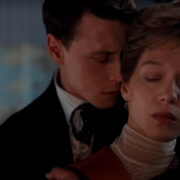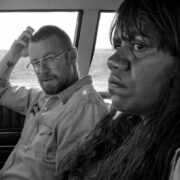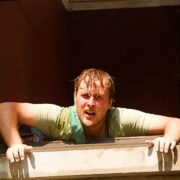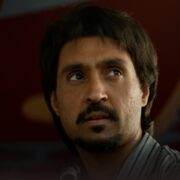WATCHMEN (S1E1) “It’s Summer And We’re Running Out Of Ice”: Arrives With A Bang
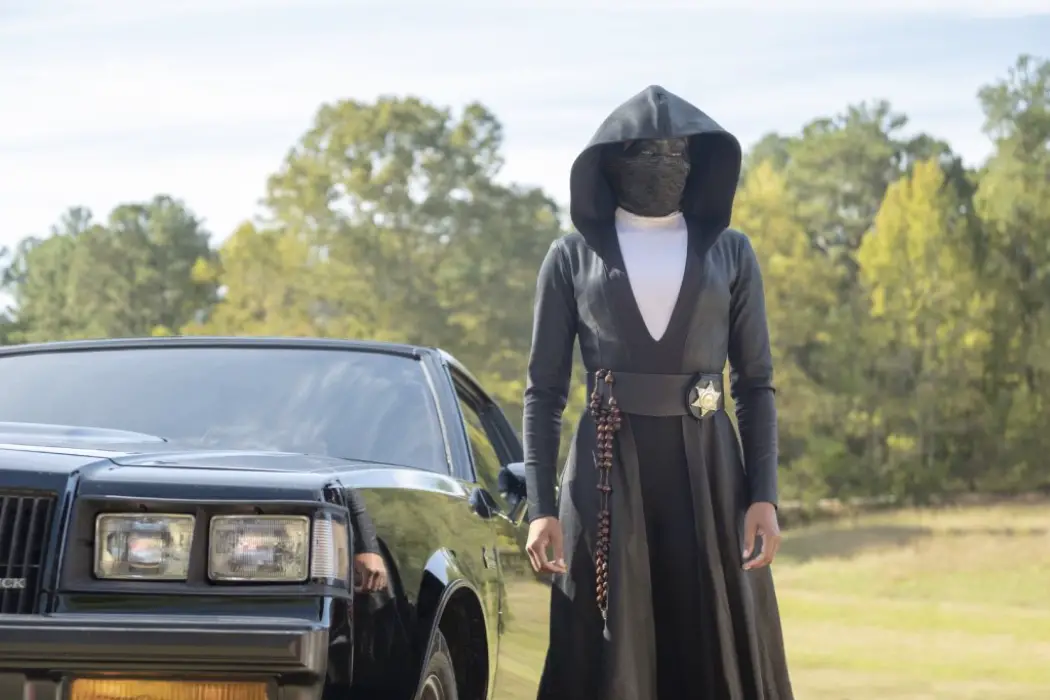
When it came out in the mid 1980s, Watchmen was probably the most revolutionary thing to ever hit graphic novels. The deconstruction of the superhero, the morally mixed protagonists, the timely and striking political commentary, the nine panel page, the symmetrical framing, so on and so forth. It’s fundamental to the superhero stories we know today, to every graphic novel that’s come out ever since, so it’s no surprise it’s been largely deemed unfilmable. After all, how can a story so based in comics be taken away from the page? Alan Moore, writer of the novel, has strongly disapproved adaptations of his work.
Of course this hasn’t stopped attempts at filming the unfilmable, Zack Snyder’s 2009 feature film rendition of the story certainly tried to deliver everything the novel stands for. Whether this was a successful or unsuccessful attempt, depends on who you’re asking. It should come as no surprise that reactions to the film are divisive at best. So, of course, when it was announced that hot off the heels of The Leftovers, writer/show-runner Damon Lindelof would be remixing Watchmen into a TV series, it was met with timidity. Skip to today and the first episode arrives, with a bang.
A Stronger Loving World
Beginning with a Bass Reeves film and right after jumping straight into the 1921 Tulsa race riot, the opening scene of Watchmen follows a small boy as his parents take him through the scene of the attack, businesses being destroyed and people turning into corpses all around him. Opening an episode, hell, opening a series on this kind of note is nothing short of seriously risky on Lindelof’s part. But where others have failed, he succeeds.
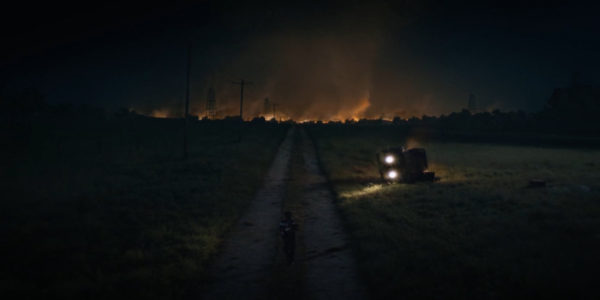
The scene, highlighted by desperate and tense performances, emphasizes the situation of the background rather than the focus of the forefront. Whites with guns, Black people on fire, and bodies lining the streets are horrifying at the very least. The Tulsa race riots are an event not taught in American classrooms because it seems like a footnote, as an isolated incident against a series of terrible crimes. This, as Lindelof knows, isn’t true. It’s only fitting the information regarding this travesty has been spreading more openly since. He sets this terrible incident as the mood setter for the rest of the episode. We jump into a new situation right after, a new situation that shows maybe things aren’t so different after all, even 100 years later.
Fearful Symmetry
It is now 2019. The events of the Watchmen novel took place three decades ago, the squid that took out half of New York changed the way the world functions. We open on a cop car, running a patrol against a rather suspicious truck with a rather suspicious load of something in the trunk. It’s a tense scene, the Black officer covered up by a yellow mask facing off against a white Rorschach until said officer gets killed. The cinematography here is especially great, the dark blues against the red of the bullet wounds, the white Rorschach mask against the night sky. It’s in equal parts horrifying and astounding as a scene. It’s almost hard to believe this is only the opening.
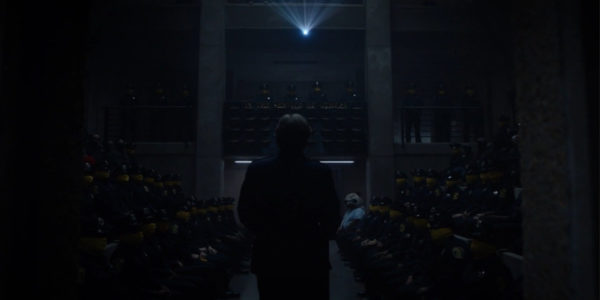
Pitting another act of racial violence right after the race riot shows two things. That, one, not much has changed since and, two, something is up with the cops. In an universe where Rorschach became a right wing hero, a mask for the racists and the lunatics to gather under, cops are against white supremacy. Videos are highlighted at meetings where The Kavalry, the Rorschach cult, say they will “wash the streets of black filth,” to the disgust of all.
Things are less clear as more is revealed about the police and their methods but the point still stands. Lindelof creates symmetry and parallels through this story. Parallels to the very real race riots of our past to the very real crimes of today. It’s a fine balance he strikes, one where leaning to either side too far will cause major backlash from the other. It’s enthralling at the best and too on the nose at the worst.
It’s looking at racism through this lens of an alternate universe where the line, which seem as black and white as ever, become more grey. Lindelof takes Moore’s fractured morality from the comic and applies it gracefully here, with everything from false interpretations of the novels heroes to reflections of the opening chapter of the novel.
A certain interrogation scene is a key example of this, an intense and unique thrill driven by the wonderful Reznor/Ross score. It’s a scene of mixed morals, of intense questioning and intense beating, one where the cops don’t seem like the good guys they pretend to be under the mask. It’s an all or nothing world, told in an all or nothing lens.
Absent Friends
While never pulling too liberally from its source, this does use is as a backing, rightfully so. Squids rain from the sky, Veidt returns in a weird side-plot with possible clone servants, and Laurie and Manhattan seem set to return in the future. Many will complain that while it does use Watchmen as a plot source, as a rich textual history, it doesn’t feel like Watchmen. And while, this isn’t Moore’s Watchmen or Snyder’s Watchmen, this is Watchmen. Lindelof’s Watchmen.
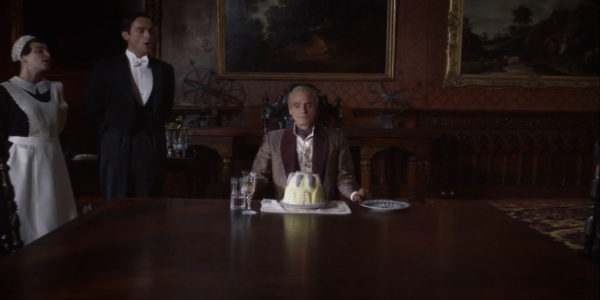
There’s also plenty of iconography to dissect here as well, early examples of the Hooded Justice and smiley faces are highlights along with background details such as an American flag with 51 stars instead of 50. Nicole Kassell, director of this episode, does a fine job of not only inserting Watchmen’s world onto Lindelof’s script, but of putting Lindelof’s ideas into Watchmen’s world.
The lighting is beautiful, from the neon blues of the police station to the muted yellows of the opening reflect time and mood wonderfully. The Trent Reznor/Atticus Ross score, a digital soundscape of tunes, opens up emotions to new heights. It all culminates into a wonderful, disturbing, engaging, thrilling look at a world gone still.
Conclusion
Lindelof is running his own thing with Watchmen. He’s abandoning the trappings of the novel and taking its core ideas into something new. Wholly new. This isn’t to say he doesn’t respect the novel, hell, he bases the entire story around its universe, but modern struggles require modern solutions. Watchmen is looking to be a thrilling and satisfying continuation of the world that changed the world 30 years ago, if the pilot is anything to base anything off of. Episode 2, it’s your move.
Watch Watchmen on HBO Go and HBO Now.
https://youtu.be/-33JCGEGzwU
Does content like this matter to you?
Become a Member and support film journalism. Unlock access to all of Film Inquiry`s great articles. Join a community of like-minded readers who are passionate about cinema - get access to our private members Network, give back to independent filmmakers, and more.


